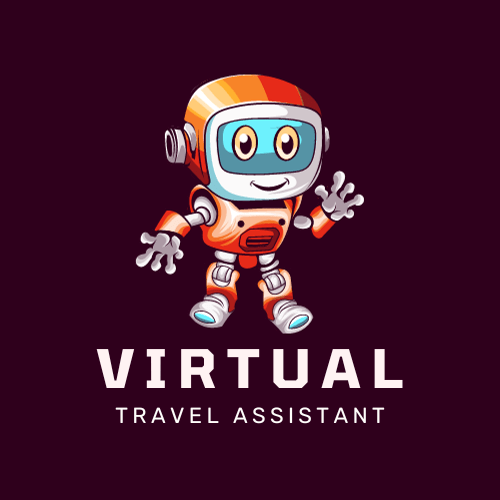Imagine never having to spend hours scrolling through outdated travel websites or flipping through pages of guidebooks to plan your dream vacation. With the rise of digital travel planning, organizing your trips has never been easier. From discovering the best flight deals at the click of a button to exploring interactive maps that highlight must-see attractions, the future of travel is all about embracing the convenience and efficiency of digital tools. Pack your bags, because the world of hassle-free travel awaits you.
The Rise of Digital Travel Planning
The Evolution of Travel Planning
Gone are the days when you had to rely solely on guidebooks and travel agencies to plan your trips. With the advent of digital technology, travel planning has undergone a remarkable transformation. Today, you have access to an array of tools and platforms that make the entire process convenient, efficient, and personalized. From researching destinations to booking accommodations and everything in between, digital travel planning has made exploring the world a breeze.
How Digital Technology is Revolutionizing Travel Planning
Digital technology has revolutionized the way we plan our travels. With the click of a button, you can explore various destinations, compare prices, and find the best deals. The rise of online platforms, mobile apps, and advanced algorithms has made travel planning more accessible and user-friendly than ever before. Now, let’s dive into the benefits of digital travel planning.
The Benefits of Digital Travel Planning
Convenience and Efficiency
One of the most significant benefits of digital travel planning is the convenience and efficiency it offers. No longer do you have to physically visit multiple travel agencies or spend hours flipping through guidebooks. With just a few clicks, you can research, plan, and book your entire trip from the comfort of your own home. Online travel agencies and travel aggregator websites enable you to compare prices, read reviews, and make informed decisions quickly and easily.
Access to Real-Time Information
Digital travel planning gives you access to real-time information, allowing you to stay updated on travel trends, weather conditions, flight statuses, and more. This is particularly beneficial when you are in the midst of planning and need to make timely decisions based on the latest information. Whether it’s checking the availability of accommodations, finding the best time to visit a particular destination, or navigating public transportation, digital travel planning empowers you with up-to-date information at your fingertips.
Personalization and Customization
Digital travel planning also offers a high level of personalization and customization. With the help of advanced algorithms, platforms can analyze your travel preferences, past trips, and search history to provide tailored recommendations. Whether you prefer budget-friendly options, luxury accommodations, or unique experiences, digital travel planning tools can curate personalized itineraries and suggestions that match your interests. This level of customization enhances your travel experiences, ensuring that each trip is uniquely catered to your preferences.
Popular Digital Travel Planning Tools
Online Travel Agencies (OTAs)
Online travel agencies, also known as OTAs, have gained immense popularity in recent years. These platforms serve as one-stop shops for all your travel needs. They provide a wide range of services, including flight bookings, hotel reservations, car rentals, and even vacation packages. With user-friendly interfaces and comprehensive search options, OTAs offer convenience and efficiency in one place. Popular OTAs include Expedia, Booking.com, and Kayak.
Travel Aggregator Websites
Travel aggregator websites aggregate information from various sources and present it in a user-friendly format. These platforms allow you to compare prices, read reviews, and make informed decisions about accommodations, flights, car rentals, and more. By presenting options from multiple providers in one place, travel aggregator websites save you time and effort. Some well-known travel aggregator websites include TripAdvisor, Trivago, and Skyscanner.
Trip Planning Apps
Trip planning apps have become increasingly popular among travelers who prefer to have all their travel-related information on their smartphones. These apps offer features such as itinerary builders, real-time flight tracking, offline maps, and restaurant recommendations. They not only simplify the planning process but also provide convenient access to essential information during your trip. Examples of popular trip planning apps include TripIt, Tripadvisor, and Google Trips.
Artificial Intelligence in Travel Planning
AI-powered Trip Planning Assistants
Artificial intelligence has made its way into travel planning, offering personalized trip planning assistants. These AI-powered virtual assistants can assist you in various aspects of travel planning, from suggesting destinations based on your preferences to providing real-time recommendations and reminders. They learn from your interactions and continuously refine their suggestions, making the entire experience more efficient and tailored to your needs.
Machine Learning for Personalized Recommendations
Machine learning algorithms analyze vast amounts of data to provide personalized recommendations. By understanding your travel history, preferences, and behavior patterns, these algorithms can suggest destinations, accommodations, restaurants, and activities that align with your interests. The more you use the platform, the better it becomes at predicting your preferences and offering relevant suggestions, ensuring a highly personalized travel experience.
Chatbots for Instant Travel Assistance
Chatbots have become an integral part of travel planning by providing instant assistance and answering frequently asked questions. Whether you need information about visa requirements, baggage policies, or local attractions, chatbots can provide quick and accurate responses. By automating the process of customer support, chatbots save time and effort for both travelers and travel service providers, further enhancing the overall experience of digital travel planning.
The Role of Augmented Reality (AR) in Travel Planning
Virtual Tours and Simulations
Augmented reality (AR) has opened up new possibilities for travelers by offering virtual tours and simulations of destinations. Through AR apps, you can take virtual tours of museums, historical sites, and landmarks, getting a taste of the experience before even setting foot in the location. This immersive preview allows you to make more informed decisions when planning your itinerary and helps to build excitement for your upcoming trip.
AR Navigation and Wayfinding
AR also enhances navigation and wayfinding during your travels. By overlaying digital information onto the physical environment, AR apps can guide you through unfamiliar cities, highlight points of interest, and provide real-time information about nearby restaurants, attractions, and transportation options. This technology eliminates the need for paper maps and guidebooks, making your travel experience more seamless and efficient.
Virtual Reality (VR) for Enhanced Travel Experiences
Immersive Previews of Destinations
Virtual reality (VR) offers an immersive way to preview destinations before making travel decisions. Through VR experiences, you can explore popular attractions, scenic landscapes, and even hotels, giving you a more realistic sense of what to expect. These virtual previews allow you to assess the ambiance, architecture, and amenities of a place, enabling better decision-making and ensuring that your travel experiences match your expectations.
VR Travel Experiences from Home
Virtual reality also provides an opportunity to travel without leaving the comfort of your own home. VR travel experiences allow you to explore different destinations and participate in virtual tours, providing a sense of escapism and adventure. Whether it’s virtually diving into the Great Barrier Reef or exploring the bustling streets of Tokyo, VR technology brings the world to your doorstep, offering a unique and immersive travel experience.
Blockchain Technology in Travel Planning
Secure and Transparent Transactions
Blockchain technology is transforming the travel industry by ensuring secure and transparent transactions. With its decentralized and immutable nature, blockchain eliminates trust issues and offers a more secure way of conducting financial transactions. This technology enables seamless and direct transactions between travelers and service providers, reducing the need for intermediaries and minimizing the risk of fraud.
Verified Reviews and Ratings
Blockchain technology also addresses the issue of fake reviews and ratings. By implementing blockchain-based review systems, travelers can trust that the reviews they read are authentic and reliable. These systems allow users to verify their travel experiences on the blockchain, ensuring that the information provided is accurate and trustworthy. This transparency enhances the credibility of reviews and helps travelers make informed decisions based on genuine feedback.
The Future of Digital Travel Planning
Integration of Multiple Technologies
The future of digital travel planning lies in the integration of multiple technologies. Artificial intelligence, augmented reality, virtual reality, and blockchain are just some of the technologies that will further enhance the travel planning process. By combining these technologies, travel platforms will offer even more personalized and immersive experiences, facilitating seamless end-to-end travel planning and creating unforgettable journeys.
Seamless Travel Ecosystems
The future of digital travel planning will also see the development of seamless travel ecosystems. Travel platforms will collaborate with other service providers, such as transportation companies, accommodation providers, and tour operators, to create integrated systems that offer a seamless and cohesive travel experience. This integration will eliminate the need for travelers to juggle multiple apps and websites, making travel planning and execution more streamlined.
Hyper-Personalized Travel Experiences
Hyper-personalization will be a key aspect of the future of digital travel planning. With advancements in artificial intelligence and machine learning, platforms will be able to analyze vast amounts of data and offer highly personalized recommendations and experiences. From personalized itineraries to tailored suggestions for accommodations, activities, and dining options, digital travel planning will become an even more individualized and enriching process.
Challenges and Considerations in Digital Travel Planning
Privacy and Data Security
As digital travel planning becomes more prevalent, privacy and data security become paramount concerns. Travel platforms must ensure the privacy and protection of user data, taking necessary measures to prevent unauthorized access and data breaches. Implementing robust security measures, encryption protocols, and transparent data handling practices are essential to maintain the trust of travelers in the digital realm.
Digital Divide and Accessibility
While digital travel planning offers numerous benefits, it also presents challenges related to accessibility. Not everyone has access to high-speed internet and the latest technology, creating a digital divide between those who can take full advantage of digital travel planning tools and those who cannot. It is crucial for travel platforms to address these accessibility issues and ensure that travel planning tools are inclusive and accessible to a wide range of users.
The Need for Human Touch
Despite the advancements in technology, the human touch will always be valuable in the travel planning process. While AI-powered tools and algorithms can provide personalized recommendations, nothing can replace the insights and expertise of a knowledgeable travel advisor. Human interaction adds a personal touch and allows for more nuanced and tailored recommendations, especially in complex travel scenarios. It is important to strike a balance between technology-driven convenience and the human element in digital travel planning.
Conclusion
Digital travel planning has transformed the way we explore the world, offering convenience, efficiency, and personalized experiences. From AI-powered trip planning assistants to virtual reality travel experiences, technology has brought travel planning to new heights. As we move towards the future, the integration of multiple technologies and the development of seamless travel ecosystems will redefine the way we plan and experience our travels. While challenges such as privacy, accessibility, and the balance between technology and human touch exist, the benefits of digital travel planning far outweigh these concerns. Embrace the digital revolution and embark on your next adventure with the power of digital travel planning at your fingertips.



